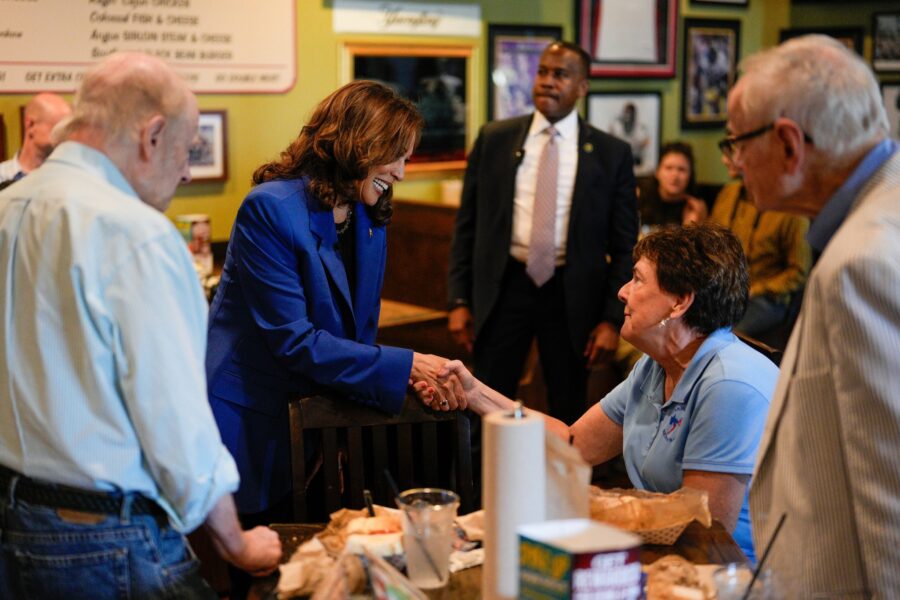Kamala Harris has outlined a plan to tackle rising food costs, a growing issue for families in Ohio and across the nation.
Speaking in North Carolina, the Democratic presidential nominee said she’ll call on Congress to pass a federal ban on price gouging in the food industry if she is elected.
“I will work to pass the first-ever federal ban on price [gouging] on food,” Harris said. “My plan will include new penalties for opportunistic companies that exploit crises and break the rules, and we will support smaller food businesses that are trying to play by the rules and get ahead. We will help the food industry become more competitive, because I believe competition is the lifeblood of our economy.”
Harris’ proposal comes amid increasing scrutiny of the food and grocery sectors, where pandemic-era price hikes coincided with record profits and industry consolidation. Critics have accused large corporations of price-gouging during this time.
Her plan mirrors legislation introduced by several Democratic senators, including Elizabeth Warren of Massachusetts and Bob Casey of Pennsylvania. However, the bill has stalled due to Republican opposition.
According to data from the Federal Reserve Bank of St. Louis, food prices have risen approximately 26% since the start of the pandemic. The cost of staples like eggs and dairy has increased even more, with eggs up 54% and milk up 36% since November 2020.
“Every day across our nation, families talk about their plans for the future, their ambitions, their aspirations for themselves, for their children. And they talk about how they’re going to be able to actually achieve them financially, because, look, the bills add up,” Harris said in North Carolina. “Food, rent, gas, back to school clothes, prescription medications. After all that, for many families, there’s not much left at the end of the month.”
A poll conducted by Data for Progress earlier this year found that 57% of voters are concerned about inflation, with food costs cited as the top issue. Many voters blame food manufacturers and grocery stores for the high prices, believing companies are raising prices to maximize profits.
Indeed, grocery store profits have surged in recent years. An analysis from the White House Council of Economic Advisers found that profit margins in the food and beverage sector have reached their highest levels in decades, contributing to the elevated cost of groceries.
In addition to price gouging, Harris has pointed to industry consolidation as a factor in rising food costs. An example is the proposed $30 billion merger between Mars Inc. and Kellanova, which could place a vast array of popular brands, including M&M’s, Pringles, and Cheez-It, under one corporate umbrella.
Other major mergers include Campbell Soup’s acquisition of Sovos Brands and J.M. Smucker’s purchase of Hostess Brands. Additionally, a trial is underway in Oregon to block the merger of grocery giants Kroger and Albertsons, with the Federal Trade Commission and multiple state attorneys general arguing that the merger would reduce competition and lower wages for workers.
Consumer advocacy groups, such as the Center for Science in the Public Interest, warn that mergers in the grocery industry threaten food security by driving up prices. “When grocery chains merge, they reduce competition,” the center said, adding that this could make it harder for Americans to access affordable and healthy food.






